Geological Features
Geological features are the natural physical characteristics of the Earth's surface that have been formed through geological processes such as erosion, weathering, volcanic activity, and tectonic movements. These features provide valuable information about the Earth's history and the processes that have shaped its surface over millions of years.
Types of Geological Features
There are several types of geological features, including:
- Mountains: Large landforms that rise prominently above their surroundings, often formed through tectonic forces or volcanic activity.
- Valleys: Low-lying areas between hills or mountains, often carved out by rivers or glaciers.
- Plateaus: Flat, elevated landforms that are the result of volcanic activity or tectonic uplift.
- Canyons: Deep, narrow valleys with steep sides, typically formed by the erosion of rivers or tectonic activity.
- Plains: Broad, flat areas of land with relatively low relief, often formed by the deposition of sediment over time.
- Coastlines: The boundary between land and sea, characterized by various features such as cliffs, beaches, and coastal dunes.
- Volcanoes: Conical mountains formed by the accumulation of erupted materials such as lava, ash, and gases.
- Caves: Natural underground voids formed by the dissolution of limestone or other soluble rocks.
Study Guide
When studying geological features, it is important to understand the processes that contribute to their formation. Some key concepts to focus on include:
- Erosion and Weathering: The processes by which rocks and landforms are broken down and worn away by natural forces such as water, wind, and ice.
- Tectonic Activity: The movement and interaction of the Earth's tectonic plates, leading to the formation of mountains, valleys, and other landforms.
- Volcanism: The processes involved in the formation and eruption of volcanoes, including the types of volcanic eruptions and their impact on the landscape.
- Glacial Activity: The effects of glaciers on the landscape, including the formation of valleys, fjords, and other glacial landforms.
- Geological Time Scale: An understanding of the vast timescales over which geological features have formed, including the concept of deep time and the history of the Earth.
Additionally, it can be helpful to study specific examples of geological features in different regions of the world, and to consider the ways in which human activities can impact and modify the Earth's surface.
Understanding geological features provides insight into the dynamic processes that have shaped the Earth and continue to influence its landscapes. By studying these features, we can better appreciate the natural history of our planet and the forces that have shaped it over time.
.◂Science Worksheets and Study Guides Sixth Grade. Weather patterns
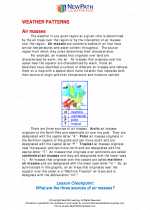
 Worksheet/Answer key
Worksheet/Answer key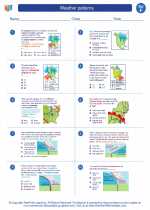
 Worksheet/Answer key
Worksheet/Answer key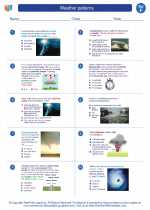
 Worksheet/Answer key
Worksheet/Answer key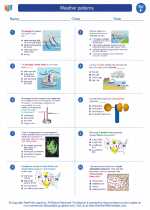
 Vocabulary/Answer key
Vocabulary/Answer key
 Vocabulary/Answer key
Vocabulary/Answer key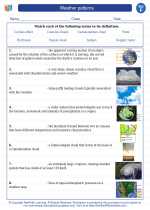
 Vocabulary/Answer key
Vocabulary/Answer key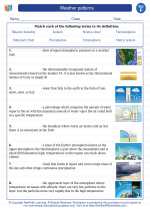
 Vocabulary/Answer key
Vocabulary/Answer key
